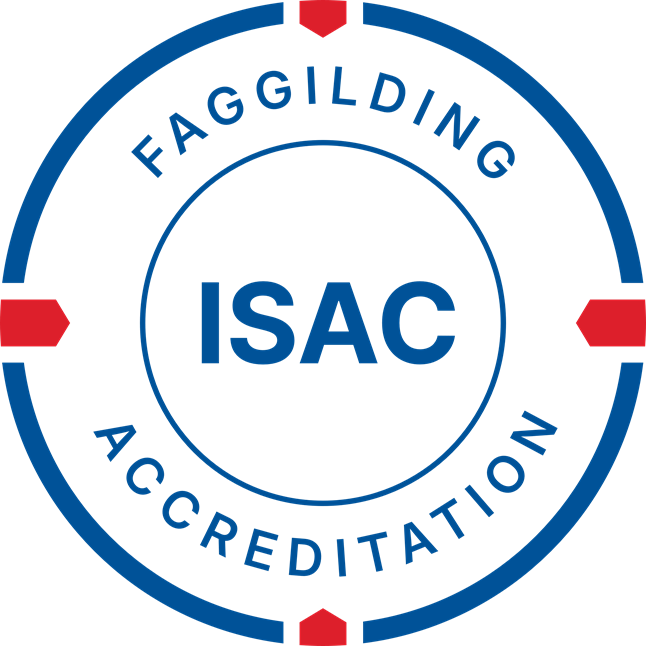Questions and answers
Here you can find answers to the most frequently asked questions from ISAC's customers.
Accreditation is a formal recognition by a competent authority that an organisation is qualified to perform certain tasks regarding conformity assessment.
Conformity assessment is an assessment of whether a product, process, system or entity meets requirements. Conformity assessment can e.g. be testing the properties of materials, inspecting the condition of equipment or certifying management systems.
Accreditation is a confirmation of the conformity assessment body's ability to perform these specific tasks. The role of accreditation is to ensure that the conformity assessment body meets the requirements of relevant standards, regulations and laws.
Conformity assessment bodies may be in competition with each other, and therefore accreditation must operate independently of competition. Within Europe, there is only one national accreditation body in each country. Accreditation is an international activity and aims to ensure that a product that is tested, inspected or certified in one country by an accredited body is recognised in all countries where accreditation is operated. In Europe, there are national accreditation bodies in more than 40 countries.
Accreditation can be mandatory or voluntary. Mandatory accreditation applies to inspection, certification or testing bodies operating in areas where the government requires accreditation. Conformity assessment bodies that execute certain activities of official control are required by law to be accredited. Conformity assessment bodies that are not legally required to be accredited can choose to be accredited in order to gain more credibility as their competence has been assessed by an independent party.
Accreditation – benefits for all
For regulatory authorities – to confirm technical competence and impartiality in conformity assessment, when required by law and regulations.
For manufacturers – to demonstrate compliance with the requirements of laws, regulations and standards, and to gain unhindered access to foreign markets.
For conformity assessment bodies – to ensure that their activities are based on evidence-based methods and processes applied with competence and impartiality.
For consumers – to strengthen confidence in the quality and safety of products and prevent repeated testing/certification that would lead to higher product prices.
Consumers demand that they can trust the safety of the products they use and the environment they live in. Any kind of claim made by companies about the characteristics of products and services on the market is worthless if it cannot be verified.
Environmental certification, content descriptions, sustainability claims are examples of areas where certification, testing and inspection bodies play an important role.
It is important for companies and regulators to have confidence in the reliability and quality of the services provided by testing laboratories, inspection bodies and certification bodies.
This trust is ensured by accreditation by an independent and impartial body with internationally recognised competence.
Before applying for accreditation, it is necessary to study the accreditation process.
Application forms can be found on the ISAC website.
The tariff can be found here on the ISAC website.
A framework cooperation agreement is in place between ISAC and SWEDAC, the Swedish national accreditation body, which states that SWEDAC, in cooperation with ISAC, will carry out accreditation of the conformity assessment activities where ISAC has not yet signed the EA Multilateral Agreement for mutual recognition, such as accreditation of testing, calibration and certification bodies.
